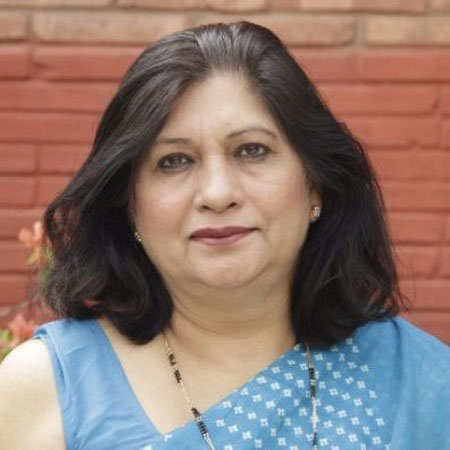Dr Vibha Dhawan, Director General, TERI
We have to ensure that the climate finance is available at a price which is affordable: Dr Vibha Dhawan, DG, TERI
Addressing the climate crisis demands innovations across various domains, including finance, philanthropy, institutional design, partnerships, and international cooperation, amongst others.

About The Episode
Welcome to the full Episode 1, Season 2, of Sustainability Karma, India’s first and only talk show on sustainability on All India Radio.
In this episode of Sustainability Karma, Dr Vibha Dhawan, Director General, TERI, talks about the World Sustainable Development Summit (WSDS) 2024, its highlights related to issues like energy transition, climate solutions, sustainable buildings and transportation, and challenges in achieving Sustainable Development Goals (SDGs) and the way forward.
Talking about the highlights of WSDS 2024, the TERI DG says these included inauguration by the Vice President of India, Jagdeep Dhankhar, and participation from notable dignitaries including the Prime Minister of Guyana and 10 ministerial-level delegates.
One major announcement made by R K Singh, Minister of New and Renewable Energy was to set up an institute on energy transition jointly by TERI and the ministry. The initiative aligns with the global shift towards cleaner energy sources and reducing reliance on fossil fuels. Discussions on energy transition, sustainable transportation options such as electric vehicles and public transport improvements, and sustainable building practices were highlighted as key focus areas for reducing emissions and promoting sustainable development, she adds.
In terms of specific climate actions needed in 2024, Dr Vibha Dhawan says that the focus should be on reducing dependence on fossil fuels, adopting sustainable transportation, and promoting sustainable building practices.
Reducing reliance on fossil fuels includes phasing down coal, oil, and natural gas in favour of cleaner alternatives such as hydrogen and biogas. Sustainable transportation involves transitioning to electric vehicles and improving public transport systems. Sustainable buildings need to focus on using local materials, designing for energy conservation, and incorporating renewable energy options, she elaborates.
Breakthroughs in technology, finance, and global governance are essential to addressing the climate crisis, she emphasises. Saying that these areas require innovation and collaboration across various domains such as finance, institutional design, partnerships, philanthropy, and international cooperation, she points out that challenges such as the cost and risk associated with new technologies and varying interest rates for loans present obstacles that need to be addressed.
Addressing the global challenge of accelerating the pace of progress to achieve Sustainable Development Goals (SDGs) by 2030 calls for collaborations and partnerships on a global scale. Although the world is currently falling short of meeting many SDGs, particularly due to factors such as the COVID-19 pandemic and geopolitical issues, Dr Vibha Dhawan is optimistic that progress can be made through co-development of technology and targeted financial solutions.
For India, she says, there has been significant progress in meeting several SDG targets, such as those related to neonatal and under-five mortality, vaccination rates, and access to electricity and sanitation, and these achievements should provide encouragement to continue striving towards the broader goals of sustainable development.

